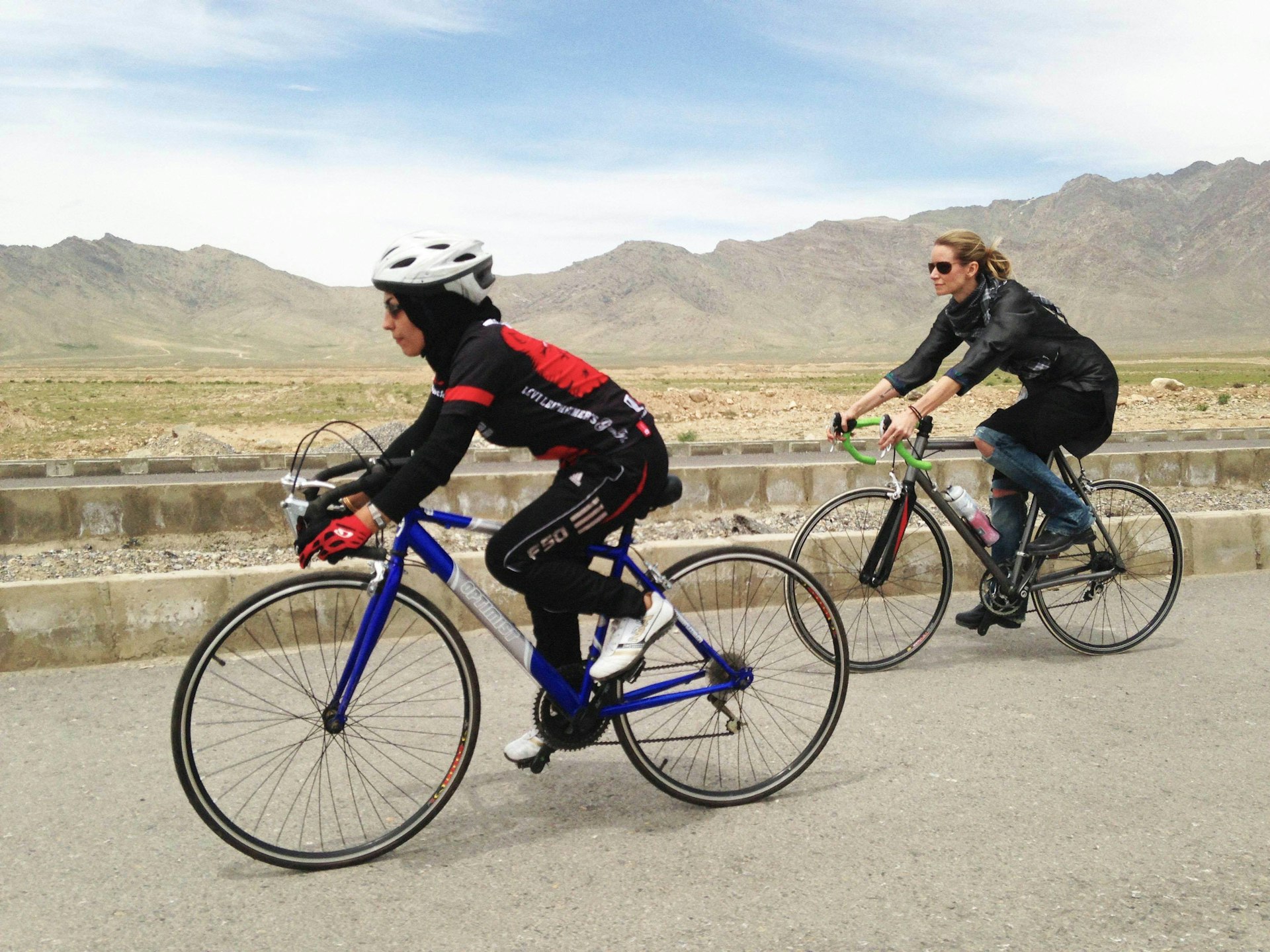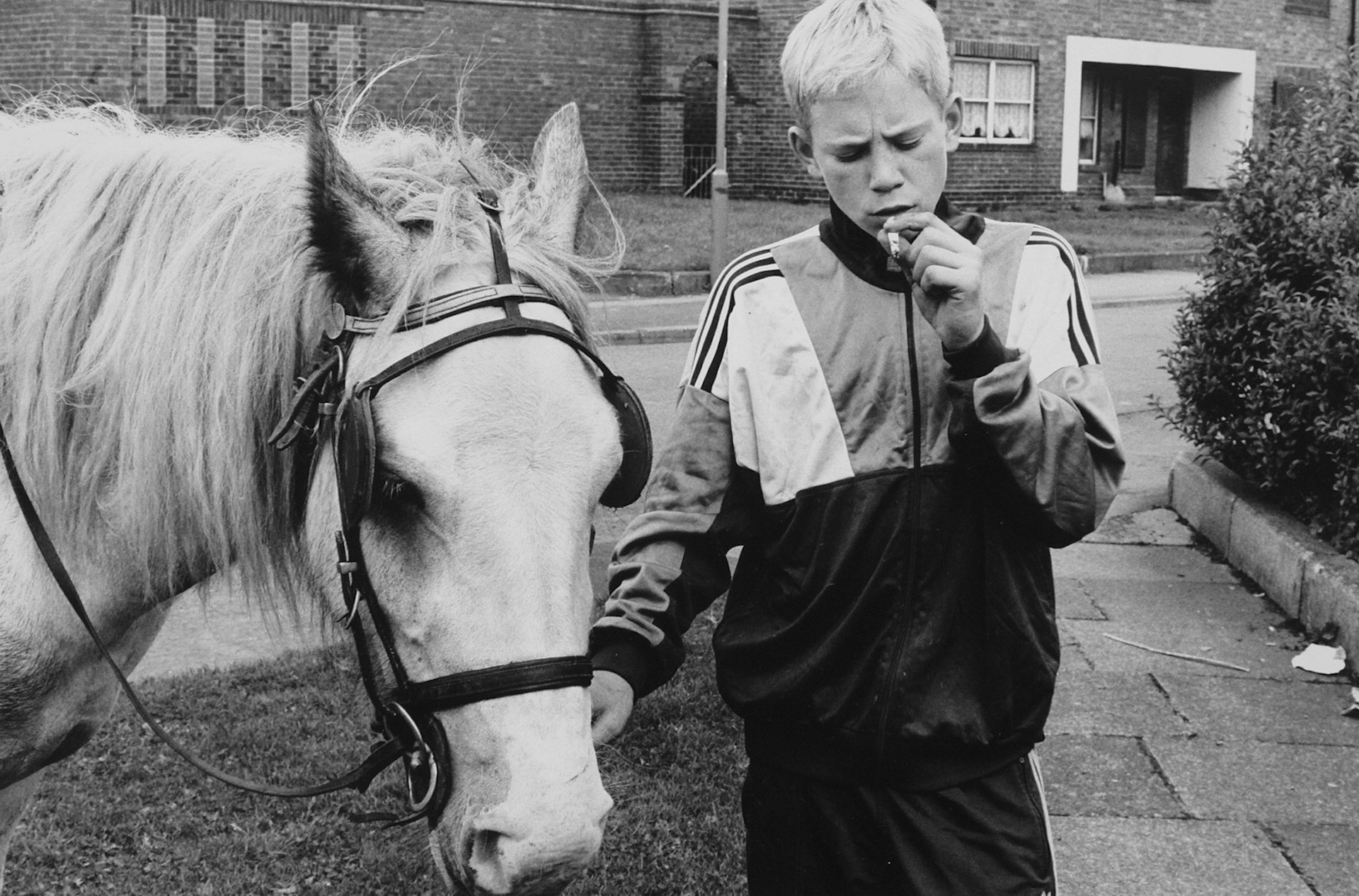
Capturing the spirit of childhood
- Text by Cian Traynor, Atina Dimitrova
- Photography by Lead image: Dean Chapman, from 2001's Shifting Ground
Some things never change about growing up: the innocence and imagination, the hormone-induced rebellion, the struggle for an identity of your own.
But beyond that, there are always cultural experiences unique to a specific time and place.
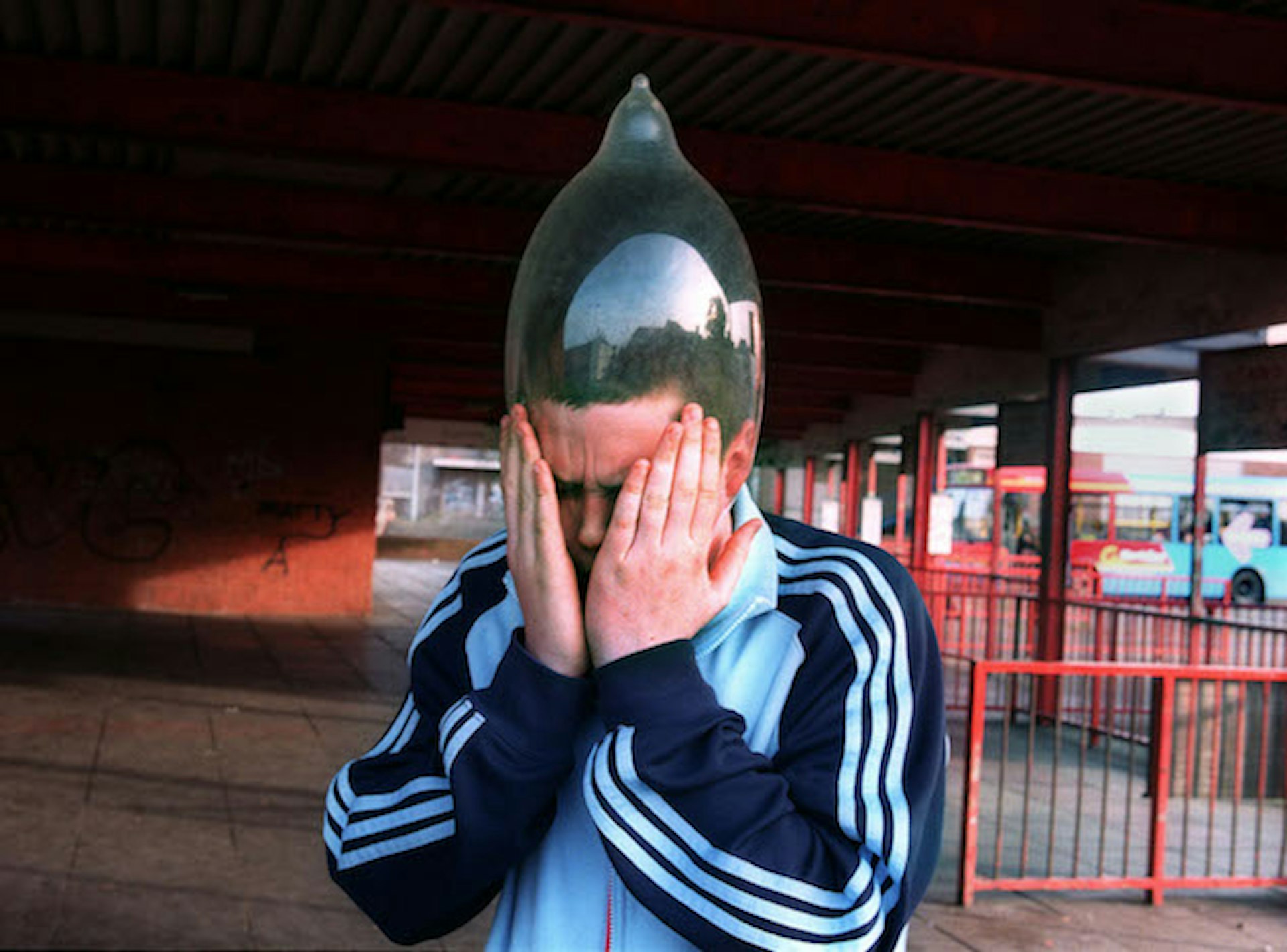
Seaham Bus Station (2005) from All Dressed Up by Karen Robinson
A new exhibition at Side Gallery in Newcastle, the UK’s only venue dedicated to documentary photography, pieces together four decades’ worth of work exploring those complexities.
They include Wendy Ewald’s seminal Portraits and Dreams, a project developed with children she taught in an Appalachian coalfield community during the 1970s, as well as Dean Chapman’s Shifting Ground (2001), which documents young people’s lives in Britain’s post-industrial landscape.
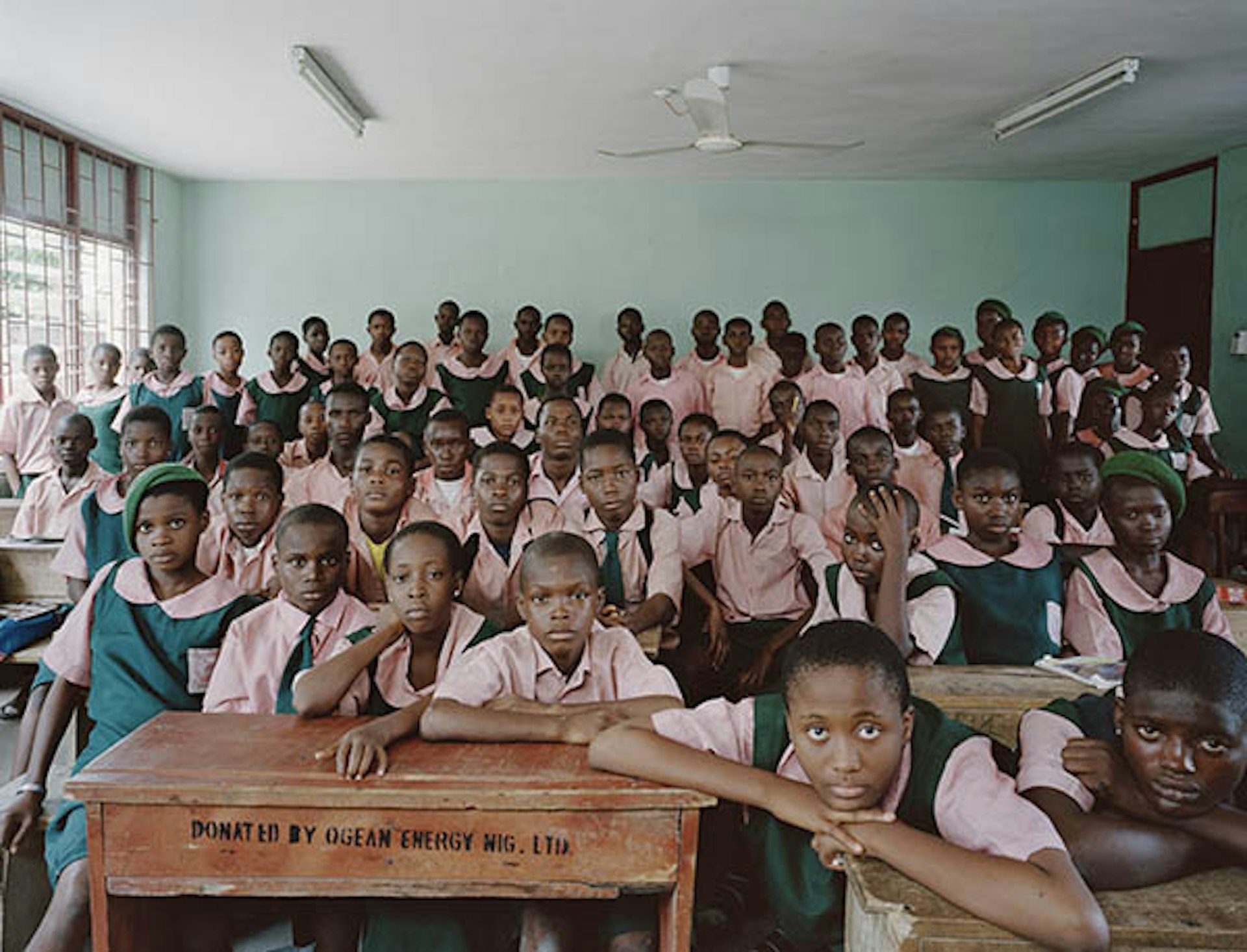
A maths class at Kuramo Junior College in Victoria Island, Lagos, Nigeria. Photo by Julian Germain.
One previously unseen work is Liz Hingley’s Home Made in Smethwick, which gathers intimate portraits of family meals in one of the UK’s most culturally diverse areas.
Having grown up in the West Midlands herself, the photographer wanted to see how the small town’s Victorian terraced houses, which were built en masse for industrial workers, have been transformed to suit cultures and tastes from around the world.
Why did you choose cooking as a way into the lives of these families?
Smethwick has been a reception area for migrants for generations. Naturally, when resources to make a home in a new environment are limited, food comes before wallpaper or even beds.
Posing the simple question, ‘What is your favourite recipe?’ from door to door, I was welcomed into homes to join the preparation of personal dishes rich with meaning and memory.
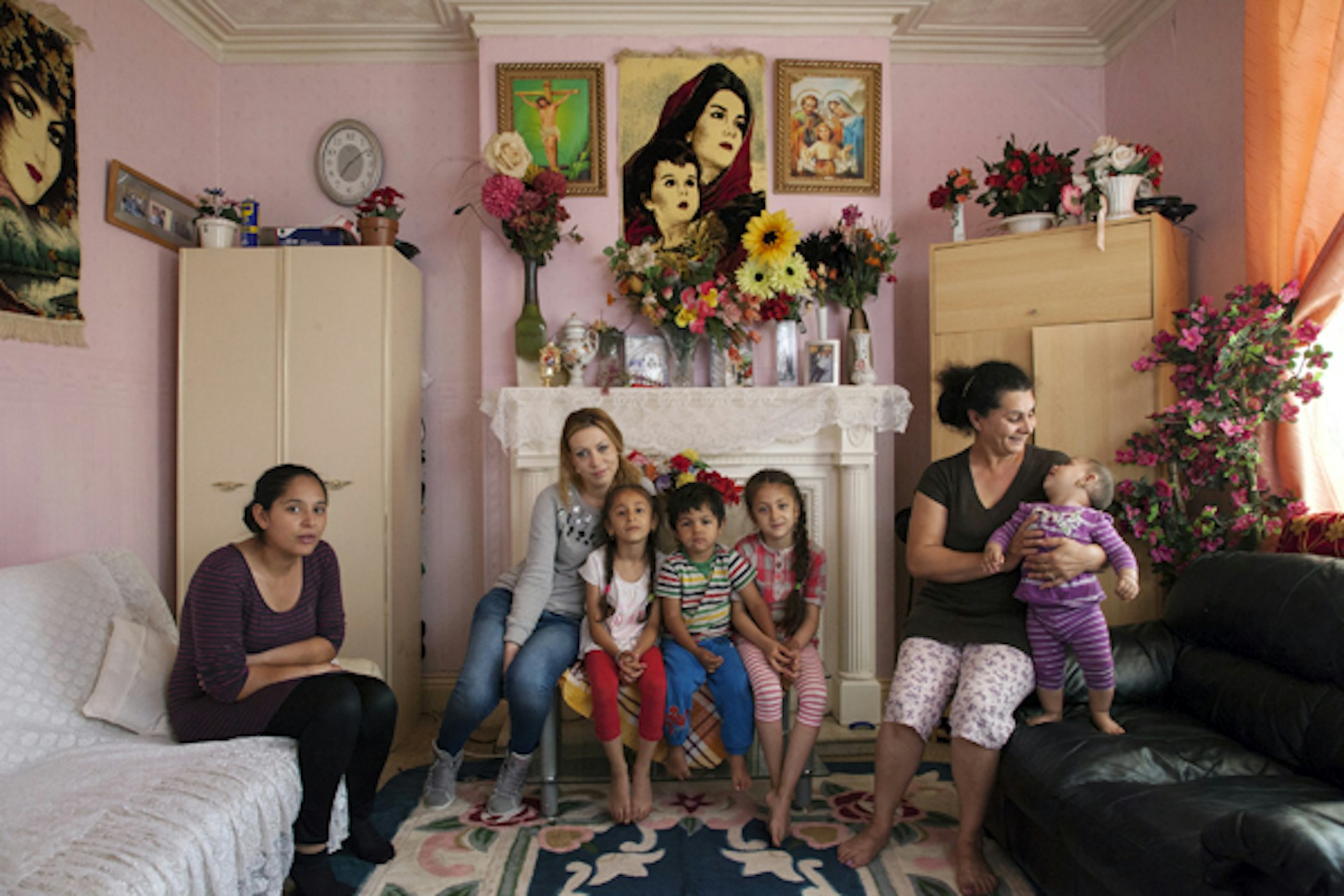
From Home Made in Smethwick by Liz Hingley.
Conversation flowed over the kneading of family-size naans; it continued over the harvesting of herbs grown from seeds stuffed into suitcases; and while waiting for blueberry crumble to bake with a cup of Pakistani pink tea.
Cooking and eating together drew out remarkable life stories and revealed the complex journeys that have brought people from 130 different countries to Smethwick.
Rather than a cookbook, this collection of portraits and recipes reveals how food can act as a bridge from one continent to another; from one generation to the next; and from one house to its neighbour.
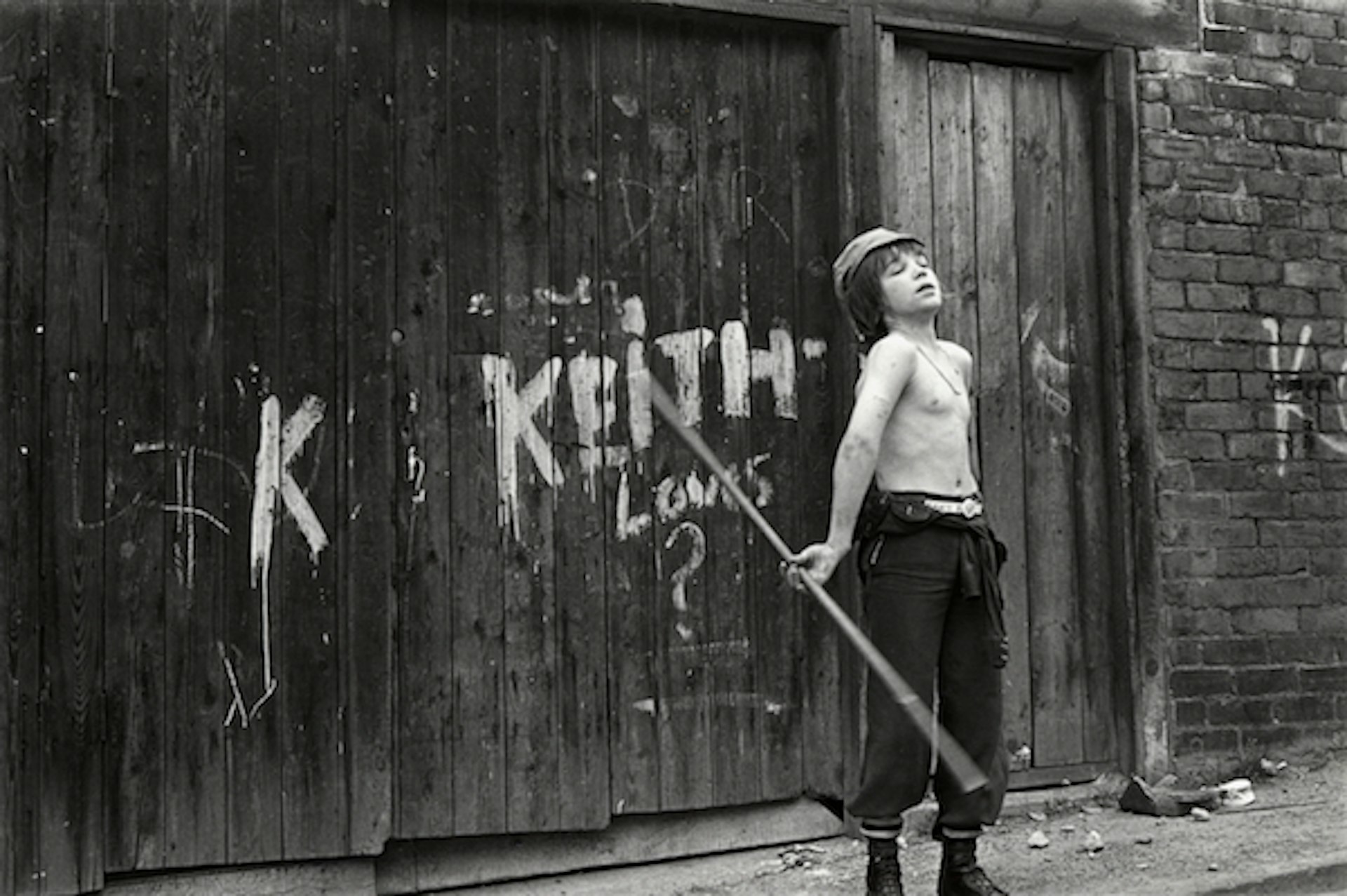
From Juvenile Jazz Bands (1979) by Tish Murtha.
The tastes of home are never left behind; they accompany people through their lives. They cement relationships and are passed on and transformed by new generations and new contexts.
How does being an anthropologist feed into your photography?
Photography gives me an insight into people’s intimate stories and experiences. It also enables me to reflect on my own perspectives and feelings about life. I tend to immerse myself in long-term projects that require in-depth research.
This led me to begin collaborating with academics to develop the visual side of their research into society. I enjoy the challenge of finding ways to communicate complex issues through imagery… It’s an exciting intermediate space of constant discovery.
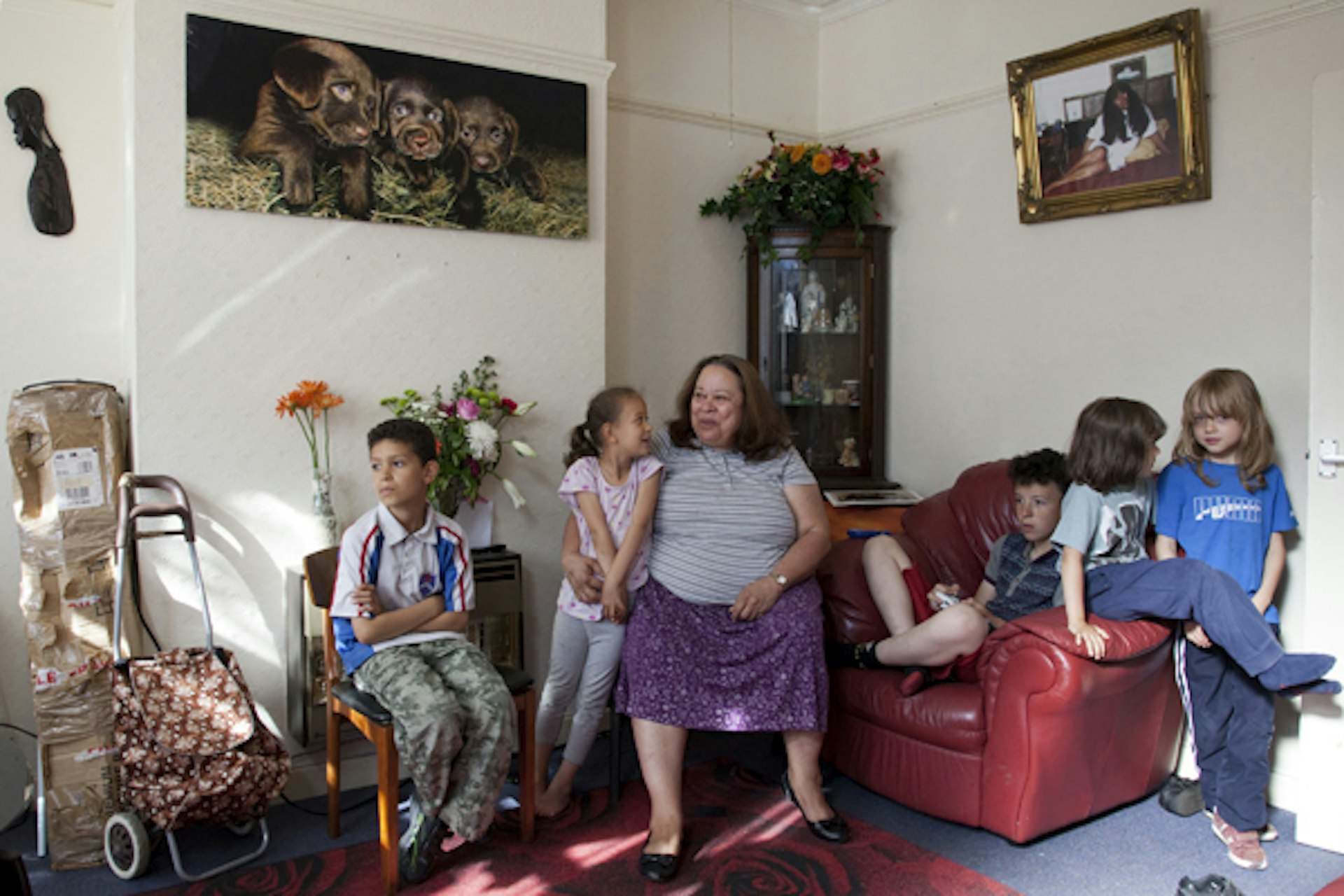
From Home Made in Smethwick by Liz Hingley.
How well did you get to know these people while photographing them?
I was initially drawn to photography by the opportunity it offers to have uniquely intimate experiences with strangers whom I would not otherwise have the opportunity to meet.
Like all relationships, these particular exchanges are built on trust and are intuitive so therefore hard to articulate in words. I want to portray people rather than subjects.
All those I met contributed to this celebration of the social heritage and culinary richness of Smethwick today. With the aim of capturing the essence of a community, I have been the lucky guest at their table and a passenger on their journey.
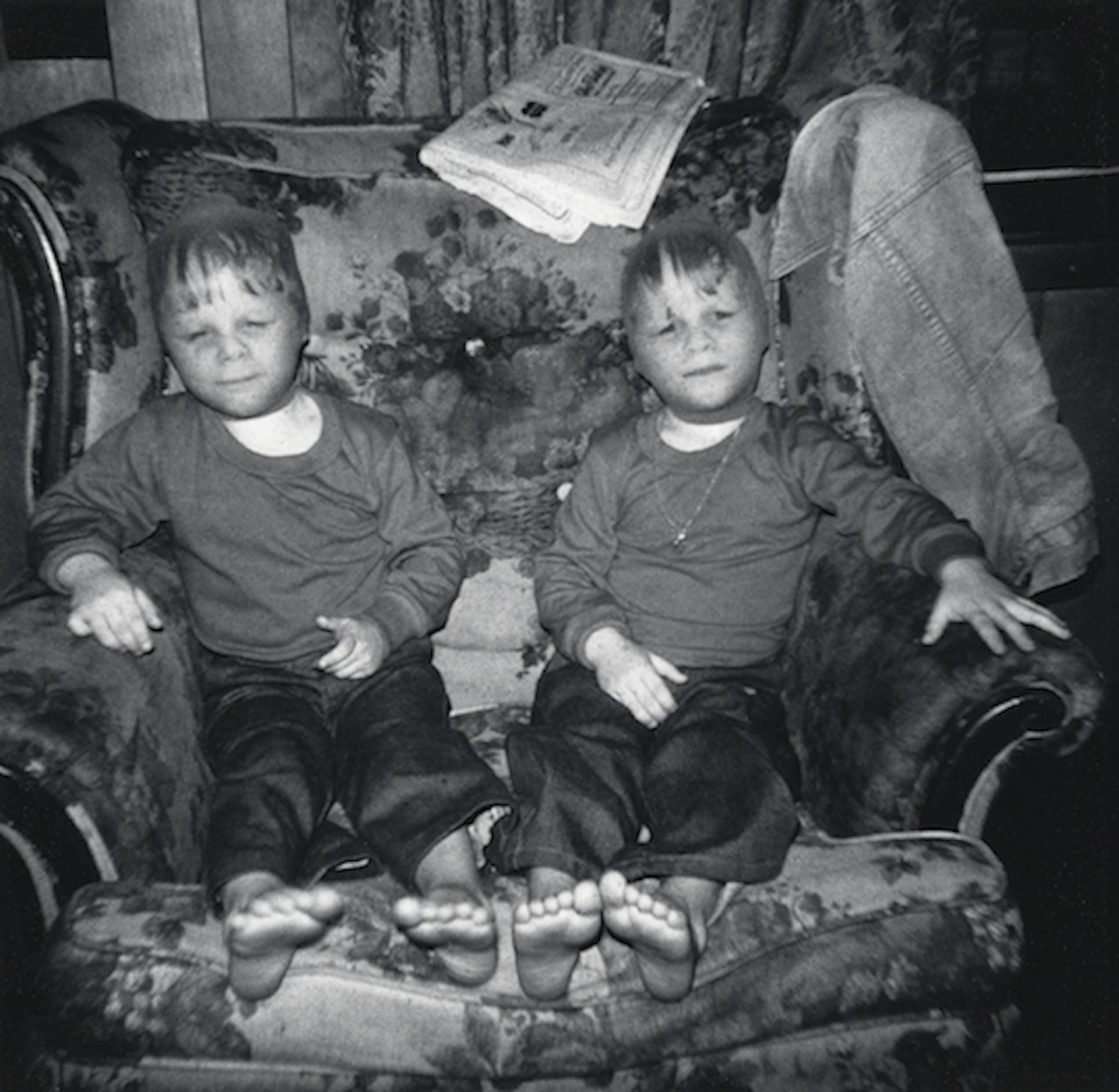
Philip and Jamie are creatures from outer space in their space ship, by Denise Dixon.
Do you ever feel a connection with your subjects or do you find it’s better to be detached as a photographer?
My photographs are developed through collaboration. I seek opinions on how people wish to be represented and allow them to intervene in positioning themselves.
The majority of my time is spent engaging through observation and conversation. After developing an understanding of my subjects and their contexts, I then see the moment to capture.
Using digital camera equipment enabled me to share the results and offer people copies of their images quickly and easily; this was crucial in building trust and sustaining relationships.
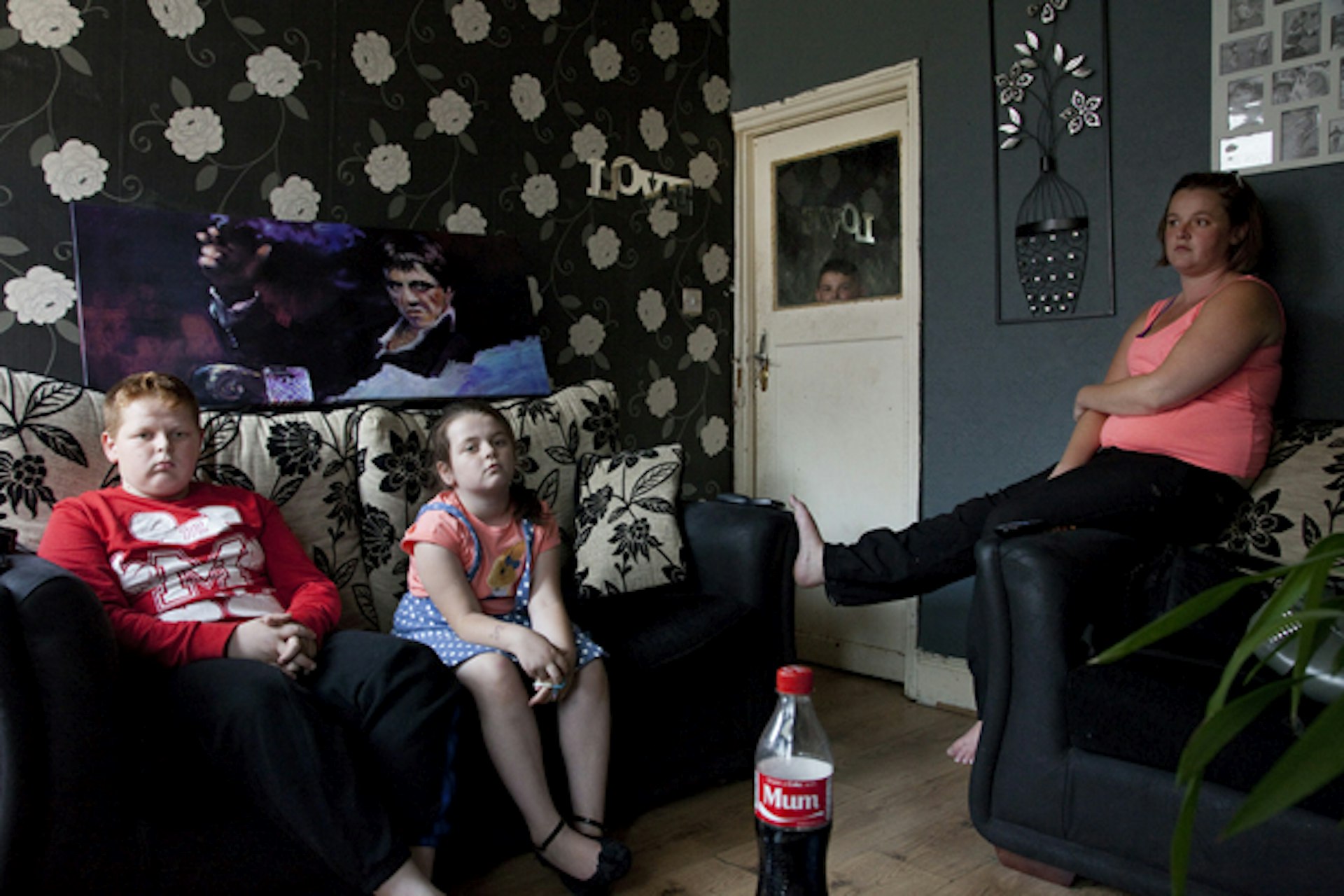
The Popa Family. From Home Made in Smethwick by Liz Hingley.
What’s been the greatest challenge in your career so far?
My practice and outlook developed significantly during the three years I lived in China creating the work Shanghai Sacred while spending the summers producing Home Made in Smethwick in the UK.
That feeling of living between two very diverse locations gave me an understanding and compassion for those who carry their sense of home from place to place.
It’s been a personal and surprising journey of discovery and I am only just beginning to reflect on and appreciate this experience.
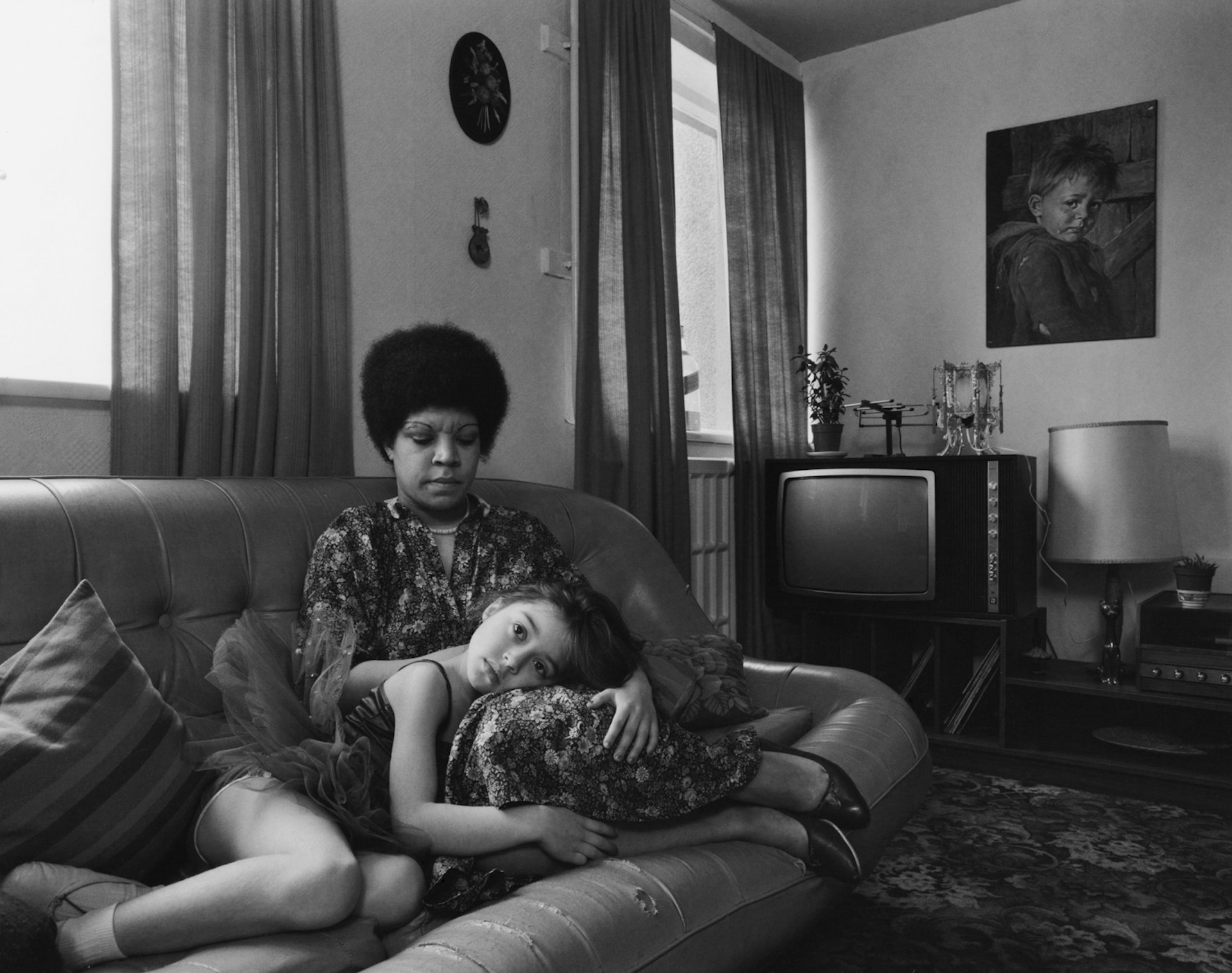
Carmen Decker and mum, Diana (1982). From Step by Step by Liisa Konttinen.
Childhoods runs at Newcastle’s Side Gallery until 27 November.
Check out Liz Hingley’s portfolio.
Enjoyed this article? Like Huck on Facebook or follow us on Twitter.
